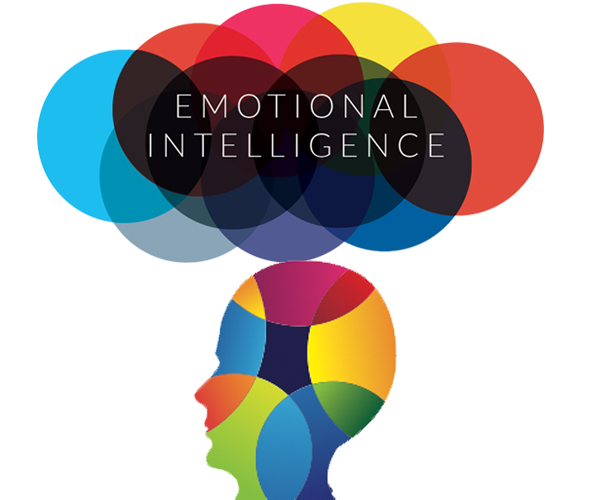By Karima Mariama-Arthur, Esq.
A leading authority on leadership development and organisational performance management, Karima brings more than 25 years of comprehensive, blue-chip experience in law, business, and academia to every client engagement. A shrewd advisor to distinguished organsations from DC to Dubai, her expert insights help clients successfully navigate today’s ever-changing and competitive global business environment. Karima is the author of the internationally acclaimed and 2019 NAACP Image Award-nominated leadership guidebook, ‘Poised For Excellence: Fundamental Principles of Effective Leadership in the Boardroom and Beyond ‘ (Palgrave Macmillan). As an extension of her work, she speaks regularly both nationally and internationally in her areas of expertise and serves in an advisory capacity on select corporate boards.
Leadership is an evolutionary process that can be learned, developed and mastered over time with practice. My book, Poised For Excellence: Fundamental Principles of Effective Leadership in the Boardroom and Beyond, provides insight into leadership effectiveness through forty principles that can be leveraged to increase effectiveness, regardless of industry or expertise. It examines developing leadership excellence through four core areas: 1) focused introspection; 2) disruptive paradigm shifts; 3) benevolence, collaboration, and value-based service to others, and 4) fundamental calls to action.
People who desire to become more effective leaders and maximize their influence can learn to navigate the performance challenges associated with leadership and transform their thinking and behaviour at a high level. Putting what is read into practice—into action—is what distinguishes extraordinary leaders from average or mediocre leaders. My philosophy and experience teaches that principle-based leadership, presented through an introspective and didactic methodology, empowers individuals to take ownership of the leadership-development process.
During my Workshop at the 2019 eLearning Africa International Conference in Abidjan, I’ll be taking a deep dive into two key leadership concepts—executive presence and emotional intelligence—and teaching the skill sets associated with mastering them.
Consider this: The way we present ourselves to the rest of the world–our ways of being–provide context for how others perceive and engage us. Therefore, leaders must be intentional about this process, especially because it deeply impacts influence.

Here’s where executive presence comes in. Often described as the “missing link between merit and success,” executive presence is the ability to manage perceptions in professional contexts. It is a powerful skill set that helps leaders at every level successfully navigate the business world and “command the room.”
However, the process of developing executive presence isn’t willy-nilly; there’s art and science to it. The Bates ExPI™ (Bates Executive Presence Index) is a research-based and scientifically validated assessment to measure executive presence. It describes executive presence as a three-dimensional model comprised of character, substance and style. Each dimension also contains five distinct facets that illuminate the pathway to mastering executive presence. The dimensions are defined as follows:
Character
“Character is one’s inner core, made up of facets shaped by temperament and early life development. Character is the most foundational level of the leader as a person, but it’s also the least observable. It’s made up by courage, optimism, integrity, discretion, and priorities. Leaders need to not only identify and clarify personal values but behave consistently with them as they lead the organisation.”
Substance
“Substance is reserved for facets of presence that are cultivated over time, a kind of maturity specifically relevant to the social role of senior business leaders. These traits tend to integrate and bring one’s character and virtues into play as a leader. Substance encompasses wisdom, confidence, composure, and strategic leadership, as well as attunement to the needs and concerns of their stakeholders. If leaders have style but not substance, they may be perceived as “empty suits.”
Style
“Style is the most overt behavioural manifestations of communicative leadership. It’s the first impression people make, based on image, mannerisms, and interpersonal behaviour. Whether we like it or not, style must be congruent with what people know and believe about a leader and their role in the organisation. With some leaders, perceived problems with style may prevent people from appreciating their underlying substance and character. We may “tune out” or “write off” a leader based purely on relatively superficial observations about style.”
Leaders who fail to master executive presence often find that they lack both the substance and gravitas that the role requires. In today’s competitive global environment, it’s one fundamental skill set that leaders at every level simply cannot afford to be without.
Emotional intelligence is another key concept that is critical to improving leadership influence and overall effectiveness.

Emotional intelligence (EQ) is your ability to be aware of, influence, and express your own emotions, and perceive and influence those of others in the context of interpersonal relationships. The reason emotional intelligence is such an important part of leadership effectiveness is that it complements cognitive intelligence (IQ) and technical expertise, the otherwise “hard skills” usually attributed to professional success.
In his Harvard Business Review article, “What Makes a Leader?”, psychologist and author Daniel Goleman enumerates the specific components of emotional intelligence as self-awareness, self-regulation, motivation, empathy, and social skills. These components can help you to perceive nuance, communicate, and behave more with greater fluency. They can also make or break your ability to lead with clarity and competence.
Organisations with an emotionally intelligent leader at the helm have low turnover and high buy-in, whereas organisations headed by leaders deficient in EQ often flounder. Uber co-founder Travis Kalanick failed as CEO because he lacked the necessary EQ. After he was caught on film berating an Uber driver, he was asked to resign.
If your EQ needs a workout, try increasing self-awareness by challenging yourself to experience a broader range of emotions. You can also work on controlling your thoughts through mindfulness practices like meditation; you can foster empathy by engaging more intentionally with others.
What’s the bottom line? The task of chiselling off the rough edges of your executive presence and emotional intelligence might seem daunting at the outset, but the benefits far outweigh the costs. By presenting your best version and increasing your emotional acumen, you give yourself the greatest opportunity to shine. You also improve your capacity to relate to and influence others. So, put in the work and position yourself for uncharted leadership success.
Make sure you register for the workshop The Art and Science of Leading with Influence: Why These Core Skills Matter to Every Leader’s Success in advance, not to miss out on more of Karima‘s insights on effective leadership and influence.
The workshop will take place on Wednesday, 23 October 2019, before the Opening Plenary.
Take a look at the eLearning Africa 2019 programme here.


















